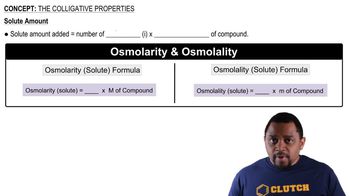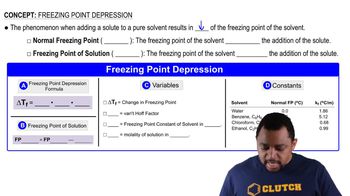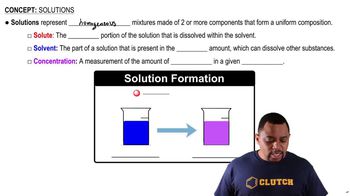Textbook Question
Assume that a portable reverse-osmosis apparatus operates on seawater, whose effective concentration (the concentration of dissolved ions) is 1.12 M, and that the desalinated water output has an effective molarity of about 0.02 M. What minimum pressure must be applied by hand pumping at 297 K to cause reverse osmosis to occur?





